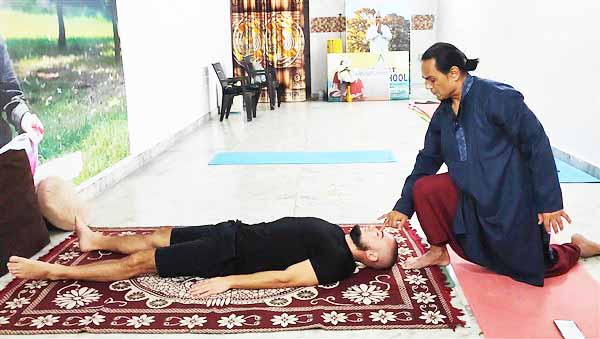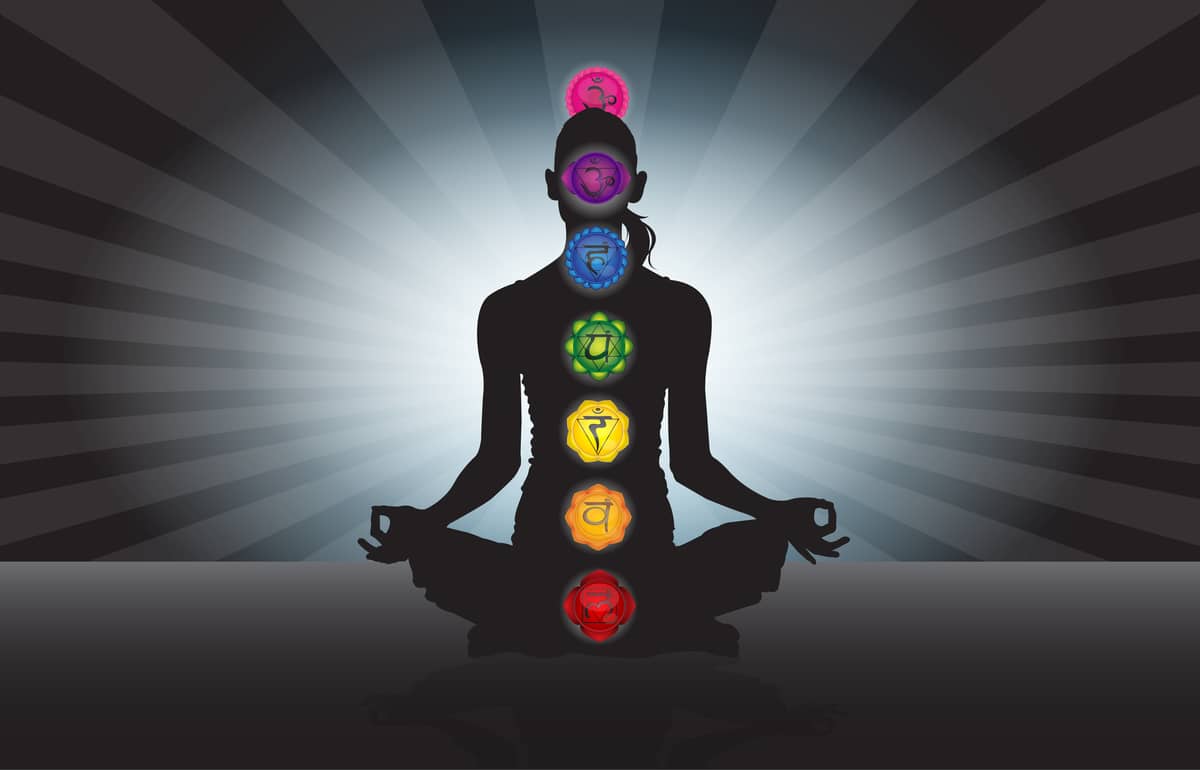Meditation taps into the unconscious mind and makes it accessible. It can do meditation correctly and upgrade the superman subconscious, releasing limiting thoughts, beliefs, and patterns that keep you from fulfilling your purpose in life. You’ll discover a whole new level of mind mastery.
The subconscious mind contains a vast amount of information and programs. It controls the vast majority of our actions. While we can influence what we do with our conscious minds, we spend the vast majority of our lives using the subconscious mind. Meditation reduces the frequency of brain waves, which means more information gets passed to the subconscious mind.
When trying to meditate, you must get into a relaxed state of mind. When you’re calm, you can influence your subconscious mind without paying attention to external stimuli. To achieve this, you need to find a quiet place without distraction. Fix your gaze on a ceiling point and begin by taking three deep breaths.
Despite being unconscious, these signals still have an enormous impact on behavior. These signals control the attentional mechanisms, deciding which sensory signals and stored memories will be attended to and transferred to the conscious level. By handling these signals, you can change the way your mind works. It is one of the key steps to changing your life.
How Meditation Activates Your Subconscious Mind?

Activating your subconscious mind is an effective way to break unwanted patterns. It also stores information you might not be aware of and helps you make decisions. Here are some ways to activate your subconscious mind. You can also make use of positive mantras. Repeating them in your mind or out loud can convince your subconscious mind that you can achieve your goals. But remember, you have to be persistent to make them true. Another effective way to activate your subconscious mind is to write down your desired outcome or goal.
Meditation activates your subconscious mind
Meditation is a powerful tool to gain more control over your subconscious mind. 50 to 60% of the human mind operates on this level. This part of the mind processes information faster than the conscious mind. You can achieve greater positivity and success by controlling this part of the mind.
When we meditate, our brain waves slow down, allowing us to tap into our subconscious mind. As a result, we become more focused, improve our cognitive skills, and develop greater tolerance and patience. In addition, it can improve your self-awareness and help you deal with negative feelings.

It helps you break unwanted patterns
If you’ve ever wanted to change your physical or emotional state, meditation can be a great help. It helps you develop awareness, which leads to self-regulation and mastery. They also increase mental clarity, so you can focus and pay attention better. It is essential if you want to reach your goals. You’ve probably had a nagging thought that says you’re not good enough, but meditation can help you see and release this limiting belief.
Though our beliefs begin as fluid, they become fixed over time. These beliefs guide our attention and harness the power of confirmation bias – our tendency to seek information that supports our ideas. Although some thoughts may be advantageous, others are harmful to our well-being.
It helps you make decisions
If you’re looking for more clarity in your life, meditation can help. According to a Harvard study, the average person spends about four-seven percent of their day in autopilot mode. During this time, we engage in behaviors and thoughts that are not in line with our intentions or purpose. Through meditation, we can rewire our subconscious mind and break the patterns of behavior that are not serving us.
During hypnosis, your subconscious mind will become highly alert, allowing it to connect seemingly unrelated memories. There are flashes of insight that can occur. However, you should not rush the process. The purpose of hypnosis is not to force an answer but to stimulate your intuition.

Meditation guides behavior
The subconscious mind guides your behavior and practices homeostasis in the mental realm. It does this by establishing behavior patterns consistent with your previous experiences. This process can lead to discomfort when you attempt to change your behavior. It is the psychological signal that your subconscious is active.
Meditation is a powerful tool for reducing stress, anxiety, and depression. It can also improve your perception and self-concept. It has a wide range of health benefits, including an improved mood and lowered blood pressure. The word “meditation” comes from the Latin meditate, which means “to meditate.” It is a systematic process for accessing the subconscious mind.
How does Meditation improves Consciousness?

One study found that meditation can improve people’s consciousness. They increased the participants’ sense of well-being. Similarly, the participants who meditated were better at catching their minds when they wandered.
Our mind are constant fills with thoughts and ideas. If we continue to feed the mind with these thoughts, it will become increasingly louder and more agitated. Our minds always want more, and most of us live with an outward focus; ignoring the vast world within and constantly identifying with mind chatter results in boredom and restlessness, which is why we must learn to become fully aware of the mind during meditation.
The brain’s lateral prefrontal cortex becomes activated when attention focuses on a single object, like a breath or mantra. This brain region helps us override our earlier “me” thoughts and see things from a neutral point of view. Over time, the brain starts developing specific areas of consciousness that enable us to feel compassion and empathy.
Several studies have demonstrated that meditation can help people overcome anxiety and improve their health and happiness. It shows to enhance self-image. Practicing mindfulness can help people develop empathy and compassion. Meditation also helps to condition the mind by letting go of unwanted psychological states and the associated conditioned responses. Meditation also has been linked to improved memory and attention, as well as reduced stress and anxiety levels.
What are the Physiological effects of Meditation?
Meditation has many benefits for health, including reducing stress and symptoms of anxiety and depression. It has also proved to improve the immune system and heart health. Meditation also helps the body deal with pain. It reduces the strain on the heart, which makes it more efficient at pumping blood. It decreases the risk of heart attacks and other diseases, including atherosclerosis.
Meditation also promotes a state of de-arousal, resulting in a decrease in blood pressure. Previous research has demonstrated the physiological differences between meditators and non-meditators. It is unknown whether these differences are due to meditation practice alone. The regular relaxation associated with meditation shows to produce de-arousal outside of meditation. In this study, 11 subjects were taught meditation as a new relaxation technique and reported a decreased physiological response.

Meditation has also improved self-esteem, self-confidence, and social connections. It has also enhanced a woman’s fertility, with a 34% success rate after just six months. New mothers who meditated on milk flowing from their breasts doubled their milk production. Researchers also found that meditation increased the activity of neurons associated with attention, memory, and learning compared to non-meditators.
Meditation improves working memory, and research from Buddhist monks has found that it can improve working memory capacity. Meditators have improved attention and focus, an essential factor in the fight against age-related memory loss and dementia. Lastly, some types of meditation are associated with increased empathy and compassion toward others. Metta meditation, also known as loving-kindness meditation, helps people develop a compassionate attitude toward others.
What happens to the brain after 8 weeks of Meditation?

During meditation, brain cells undergo a process of reorganization. It enables neurons to adapt dynamically and create new pathways. This process also changes the brain’s shape. Meditation alters the structure of the gray matter, a layer of cells that make up the central nervous system. This layer controls muscle control, sensory perception, emotion, memory, and decision-making.
While it may sound difficult to believe, meditation affects the brain dramatically. Not only does meditation increase mental clarity, but it also reduces stress and anxiety. It has also changed the volume of specific brain areas and improved mental health.
It shows that meditation improves the ability to control wandering thoughts. They also help people concentrate and focus on a task. Meditation has to preserve the gray matter, which contains the speed at which the brain processes information. Furthermore, meditation has to be proven to help people with anxiety and depression.








